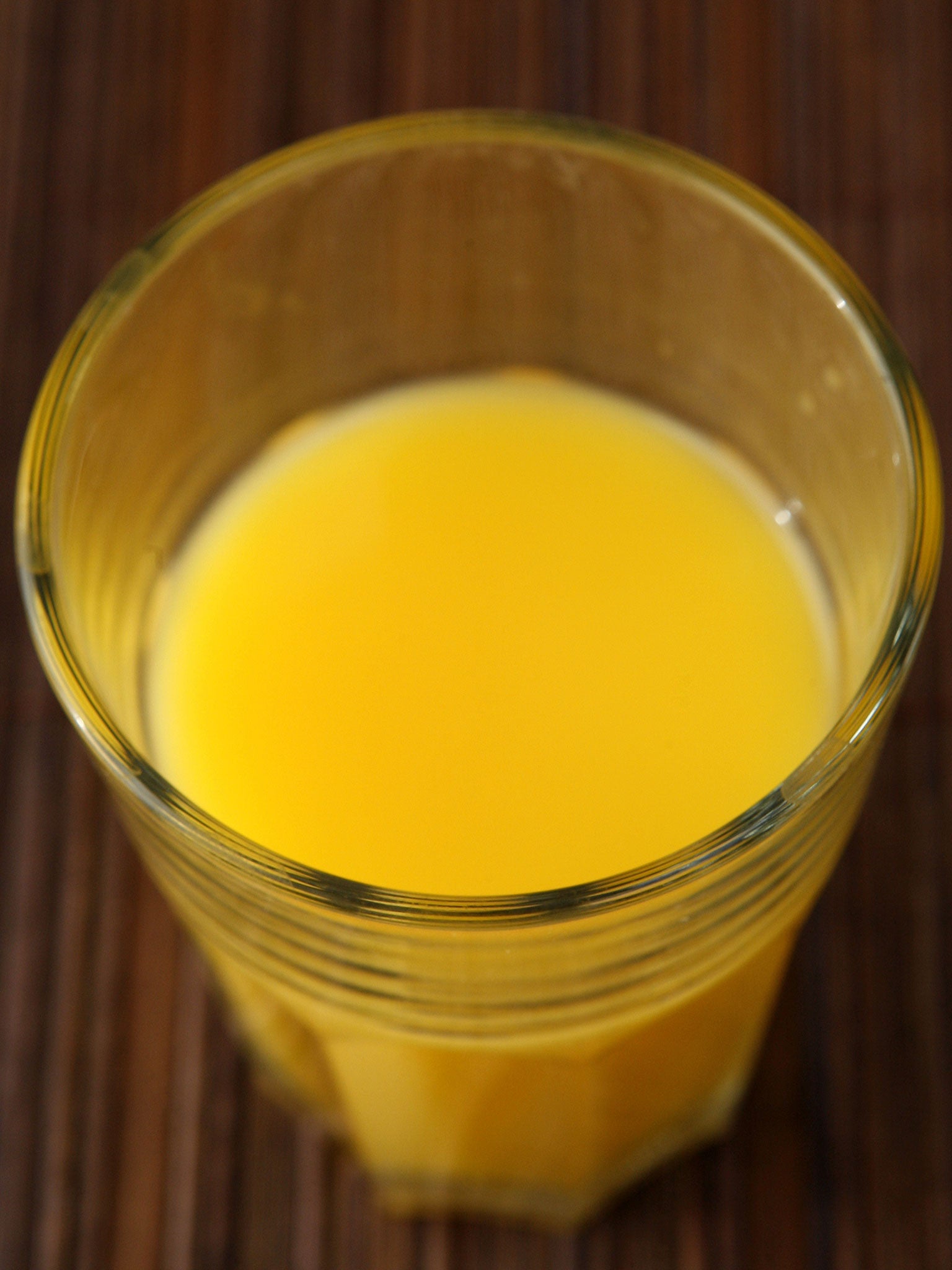'Healthy' fruit juices have dangerous levels of sugar, study shows
A quarter of juices tested had as much sugar as Coca-Cola

Your support helps us to tell the story
From reproductive rights to climate change to Big Tech, The Independent is on the ground when the story is developing. Whether it's investigating the financials of Elon Musk's pro-Trump PAC or producing our latest documentary, 'The A Word', which shines a light on the American women fighting for reproductive rights, we know how important it is to parse out the facts from the messaging.
At such a critical moment in US history, we need reporters on the ground. Your donation allows us to keep sending journalists to speak to both sides of the story.
The Independent is trusted by Americans across the entire political spectrum. And unlike many other quality news outlets, we choose not to lock Americans out of our reporting and analysis with paywalls. We believe quality journalism should be available to everyone, paid for by those who can afford it.
Your support makes all the difference.Fruit juices marketed at children as being healthy can contain as much sugar as a glass of Coca-Cola, according to a new study.
An analysis of over 200 juices, smoothies and fruit drinks by the health group Action on Sugar revealed more than a quarter of the beverages tested contained at least as much sugar as a glass of Coca-Cola, with up to six teaspoons per 250ml glass.
Research carried out by the campaign group found that the worst offenders included Asda’s Chosen by Kids Tropical Juice From Concentrate, which contains 13g of sugar per 100ml, and Tesco Goodness Slurper Apple & Banana Fruit Smoothie Snack for Kids, which contains 16.1g of sugar per 100ml.
The survey looked specifically at juices that were aimed at children or marketed as lunchbox-friendly. “It is a complete scandal that these drinks are marketed to children and parents as if they are ‘healthy’; this has to stop,” said Professor Graham MacGregor, chairman of Action on Sugar.
“We need to stop Britain’s childhood obesity epidemic spiralling out of control,” Professor MacGregor added.
Cardiologist Aseem Malhotra warned that in addition to tooth decay, there is increasing scientific evidence that regular sugary drink consumption could be associated with an increased risk of type 2 diabetes and heart disease. “Fruit juice and smoothies should not be part of a healthy balanced diet,” he said.
Action on Sugar has called for manufacturers to reduce the amount of sugar they add to their products, and for the Government to withdraw its advice that a small glass of unsweetened fruit juice can count towards fruit and vegetable intake recommendations.
But the British Soft Drinks Association argued fruit juice consumption in the UK equated to an average of just 45ml per day per person – accounting for just one per cent of the calories in the average British diet.
“Fruit juice is a useful contribution towards our five-a-day,” said Public Health England’s chief nutritionist Alison Tedstone. But she recommended just 150ml a day.
Join our commenting forum
Join thought-provoking conversations, follow other Independent readers and see their replies
Comments